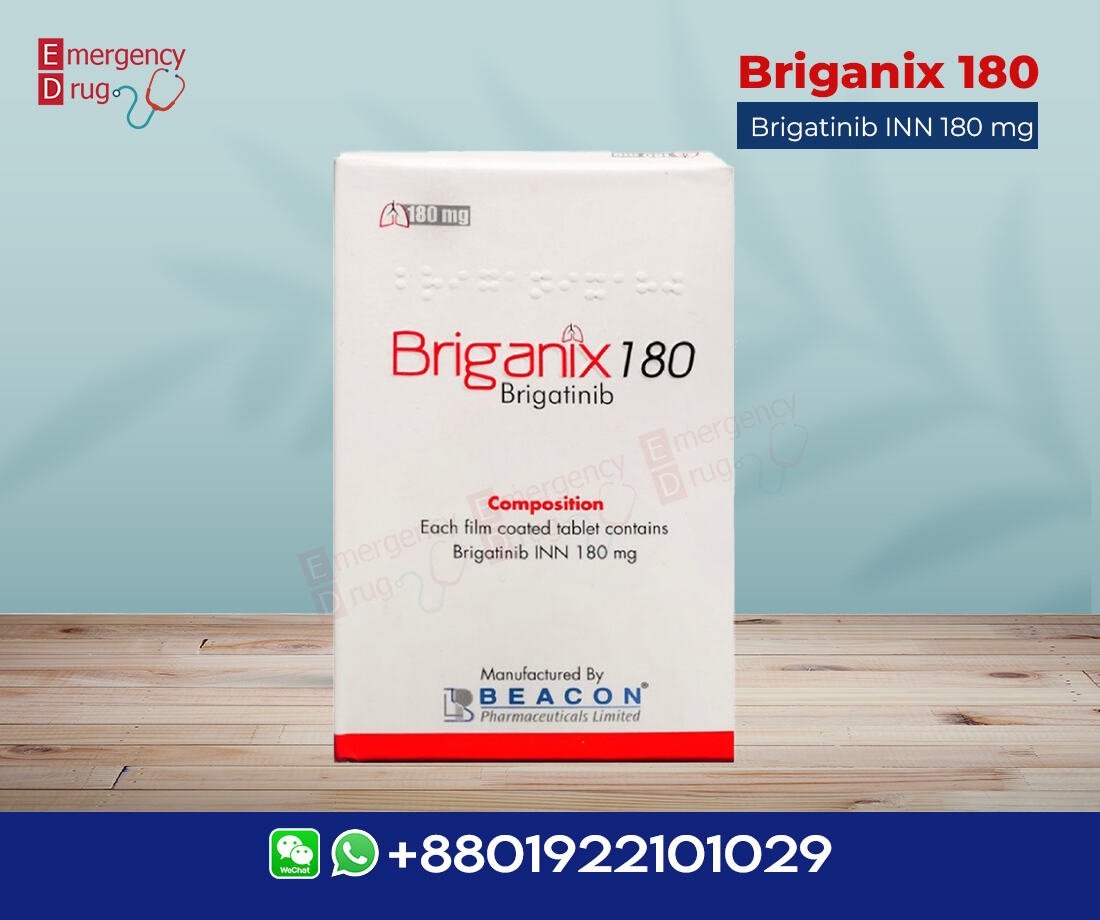Description
Crizonix (Crizotinib) is a kinase inhibitor for treating patients with locally advanced or metastatic non-small cell lung cancer (NSCLC) that is anaplastic lymphoma kinase (ALK)-positive or ROS 1 positive. Crizotinib is the first FDA-approved biomarker-driven therapy for both ALK-positive and ROS1-positive metastatic NSCLC. It is the only FDA-approved drug for ROS 1-positive NSCLC.
Product Features
| Product Name | : | Crizonix |
| Generic Name | : | Crizotinib |
| Formulation | : | Capsule |
| Available Pack Size | : | 60’s Pot |
| Available Strength | : | 250 mg |
| Registrations | : | Export Only |
Indications of Crizonix
Crizotinib is a kinase inhibitor indicate for the treatment of patients with-
- Metastatic non-small cell lung cancer (NSCLC) whose tumors are anaplastic lymphoma kinase (ALK)-positive
- Metastatic NSCLC whose tumors are ROS1-positive.
Pharmacology
Crizonix 250 mg is an inhibitor of receptor tyrosine kinases, including ALK, Hepatocyte Growth Factor Receptor (HGFR, c-Met), ROS1 (c-ros), and Receptor d’Origine Nantais (RON). Translocations can affect the ALK gene resulting in the expression of oncogenic fusion proteins. The formation of ALK fusion proteins results in activation and dysregulation of the gene’s expression and signaling, increasing cell proliferation and survival in tumors expressing these proteins. Crizotinib demonstrated concentration-dependent inhibition of ALK, ROS1, and c-Met phosphorylation in cell-based assays using tumor cell lines and demonstrated antitumor activity in mice bearing tumor xenografts that expressed echinoderm microtubule-associated protein-like 4 (EML4)- or nucleophosmin (NPM)-ALK fusion proteins or c-Met.
Dosage & Administration
Recommended Dose: 250 mg orally, twice daily
Geriatric Use: No differences in safety or efficacy observed between older and younger patients. Clinical studies of Crizonix in patients with ROS1-positive metastatic NSCLC did not include sufficient numbers of patients aged 65 years and older to determine whether they respond differently from younger patients
Pediatric Dose: The safety and effectiveness of Crizonix in pediatric patients have not been established.
Renal impairment: 250 mg orally, once daily in patients with severe renal impairment (creatinine clearance <30 mL/min) not requiring dialysis. No starting dose adjustment needed for patients with mild (ClCr 60-89 mL/min) or moderate (ClCr 30-59 mL/min) renal impairment based on a population pharmacokinetic analysis.
Hepatic Impairment: Caution use in patients with hepatic impairment
Side Effects
The most common adverse reactions (≥25%) are vision disorders, nausea, diarrhea, vomiting, edema, constipation, elevated transaminases, fatigue, decreased appetite, upper respiratory infection, dizziness, and neuropathy.
Pregnancy & Lactation
Based on its mechanism of action, Crizotinib can cause fetal harm when administered to a pregnant woman. There are no available data on the use of Crizotinib during pregnancy. Females of reproductive potential should be advise of the potential risk to a fetus and the use of effective contraception.
There is no information regarding the presence of Crizonix in human milk, the effects on the breastfed infant, or the effects on milk production. Because of the potential for adverse reactions in breastfed infants, patients should not breastfeed during treatment with Crizotinib and for 45 days after the final dose.
Precautions & Warnings
Hepatotoxicity: Patients should undergo periodic liver testing. Crizonix should be temporarily suspende, dose reduced, or permanently suspended
Interstitial lung disease (ILD)/ Pneumonitis: The drug should be permanently discontinued in patients with ILD/ Pneumonitis
QT interval prolongation: Electrocardiograms and electrolytes in patients with a history of or predisposition for QTc prolongation or who are taking medications that prolong QT should be monitore. Crizotinib should be temporarily suspended, dose reduced, or permanently suspende
Bradycardia: Crizotinib can cause bradycardia. Heart rate and blood pressure should be regularly monitore. Crizotinib should be temporarily suspende, dose reduced, or permanently suspended
Severe visual loss: Ophthalmological evaluation should be performe. Crizotinib should discontinue in severe visual loss
Embryo-fetal toxicity: Crizotinib can cause fetal harm. Females of reproductive potential should be advise of the potential risk to a fetus and the use of effective contraception.
For more Oncology medicine, visit our SHOP











John Tougas –
I bought crizonix from emergencydrug.com and delivery was really fast. It was satisfying talking customer care about the medicine.